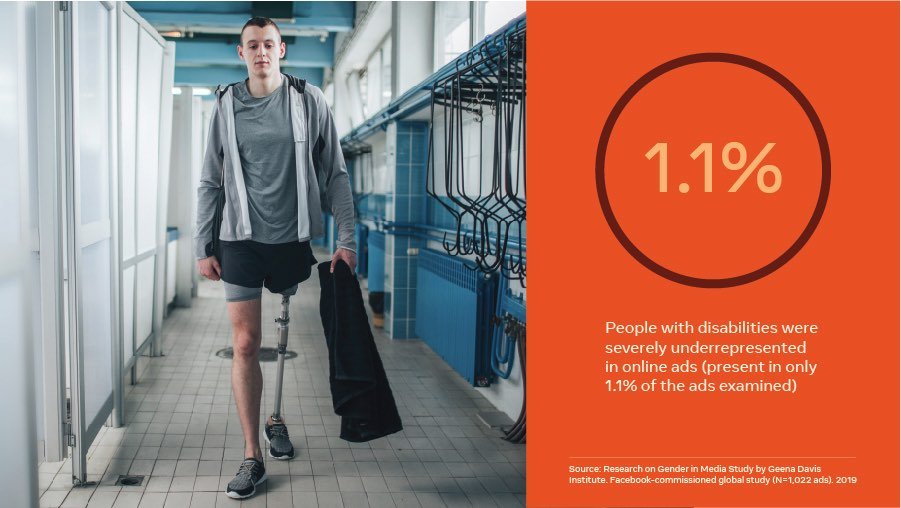54% of people don't feel culturally represented in online ads, Facebook study finds
The study includes research in partnership with the Geena Davis Institute on Gender in Media, a survey of 1,200 people, a review of more than 1,200 brand life studies and an analysis of 1,022 global Facebook video ads.
Share this post

Research by Facebook explores where things stand with representation, people’s attitudes toward diversity in online advertising and the impact of diverse and inclusive representation on digital campaign performance. It also explores the state of diversity in online advertising and the value of representation to people and businesses.
Among the findings:
- Limiting and negative representations are still present in online advertising, with some campaigns portraying people in stereotypical ways. For example:
- Women are 14.1 times more likely than men to be shown in revealing clothing and are 6.9 times more likely to be visually or verbally objectified;
- Men are 2.4 times more likely than women to be presented as angry and 1.4 times less likely to be shown as happy.
- Underrepresentation is an issue in online advertising as well, with certain groups often omitted from depictions. For example, people with disabilities were severely underrepresented in online ads (present in only 1.1% of the ads examined) as were members of the LGBTQ+ community (0.3%).
- The majority (54%) of consumers say they do not feel fully culturally represented in online advertising and most (71%) expect brands to promote diversity and inclusion in their online advertising.
- Members of diverse communities often feel most impacted. For example, of those surveyed, Latino and Black Americans are 1.8 times more likely to say they see negative stereotypical representation in online ads.
- When brands do address representation, it has a range of positive effects, including helping to drive purchases and loyalty. Some 59% of consumers polled said they are more loyal to brands that stand for diversity and inclusion in online advertising, and 59% also said they prefer to buy from brands that stand for diversity and inclusion in online advertising.
- Online campaigns with more diverse representation tend to have higher ad recall compared with campaigns featuring a single traditional representation.
To explore the research in-depth, read a Q&A with the researcher and download the white paper.
Source: Facebook



